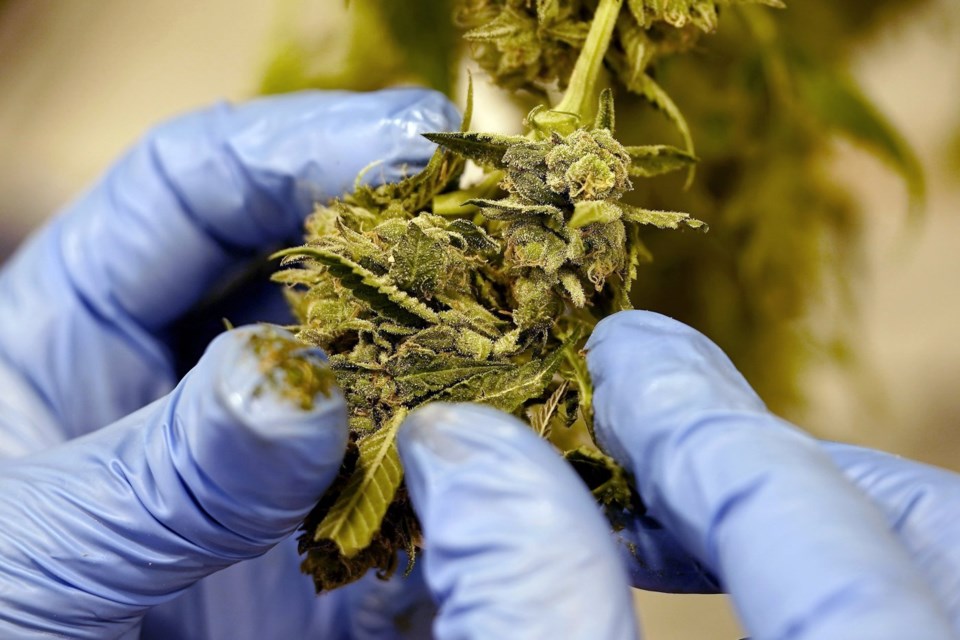Kentucky's start-up medical cannabis program should be positioned to ramp up quickly, but having products available for some patients at the outset will be a challenge, Gov. Andy Beshear says.
Beshear's administration took a big step forward Monday when a state-run lottery selected 26 applicants for cultivation and processor licenses. Those growers and processors will be issued medical cannabis licenses after paying their license fee within 15 days. The state’s medical cannabis program begins Jan. 1.
Patients eligible for medical marijuana must have a qualifying medical condition and obtain written certification from an authorized medical practitioner. Qualifying illnesses include cancer, multiple sclerosis, chronic pain, epilepsy, chronic nausea or post-traumatic stress disorder.
“I want to tell those Kentuckians that have really needed this relief that help is on the way,” Beshear said during the drawing, held at the Kentucky Lottery Corp. in Louisville.
The date for a dispensary license lottery is expected to be revealed later this week. Several dozen dispensaries will be allowed to open, divided among regions. Kentucky lawmakers earlier this year agreed to move up the timeline for cannabis business licensing by six months.
Beshear, a leading supporter of legalizing medical cannabis, said his administration has worked as fast as it could to get the program set up. He predicted that Kentuckians will see a “big ramp up” in the multi-layered system by early next year.
“But whether there’s product, day one, in every one of these dispensaries, I do think that’s going to be a challenge,” the Democratic governor said.
As a result, Beshear said he will keep in place his executive order allowing Kentuckians to possess medical cannabis for specified medical conditions, provided it was purchased legally in other states. Once the new system is underway, he will rescind that order, signed nearly two years ago, he said.
Kentucky's Republican-dominated legislature voted last year to legalize medical marijuana, effective at the start of 2025, giving state health officials time to craft regulations overseeing the program.
All medical cannabis is to be grown, processed, tested and dispensed by businesses licensed in Kentucky, which means its residents also will reap the economic benefits.
“Every winner of today’s drawing will be a Kentucky business, employing Kentuckians, moving our economy, and our health care, forward,” the governor said Monday.
Last month, the first business license went to a testing lab operating in Nicholasville. Since then, the state has issued two more licenses to testing labs.
The window to apply for a medical cannabis business license was July 1 through Aug. 31. The state received nearly 5,000 applications, including 918 cultivator and processor applicants.
The processors selected will operate statewide, from Kentucky's southwestern tip to its northeastern region. Two large-scale cultivator licenses were granted to applicants in south-central Kentucky. Licenses for smaller growing operations went to applicants elsewhere in the state. Cultivators will grow medical cannabis in an enclosed, locked facility. Processors will convert the plants into consumer products.
A majority of states have legalized medical marijuana. For architects of Kentucky's program, the goal has been to usher in a medical cannabis industry that is stable and sustainable and grows based on patients' demand, said Sam Flynn, executive director of the state Office of Medical Cannabis.
“Our goal has always been to get it right,” Beshear added. “To start it at the right size and to be able to grow from there. But to make sure we don’t replicate mistakes made in other areas or in other states, and ultimately create a system that is bigger than the initial demand may be.”
In some Kentucky counties and cities, local voters are being asked in the November general election whether to allow cannabis business operations in their jurisdiction.
Beshear framed it as a matter of personal freedom as voters get set to decide.
“If this is a choice that somebody has made, they want to pursue, and a medical professional tells them that it will help them and they can get it through a regulated entity, where we know it's safe ... and we can keep the jobs and the dollars right here in Kentucky, then we should do that,” he said.
Bruce Schreiner, The Associated Press



